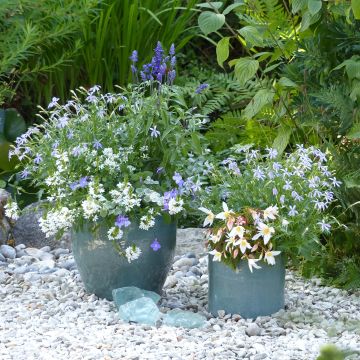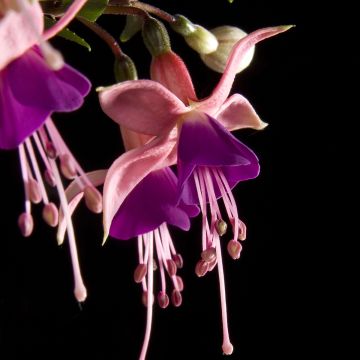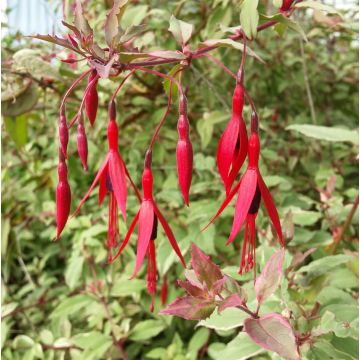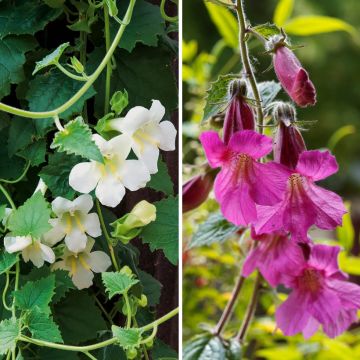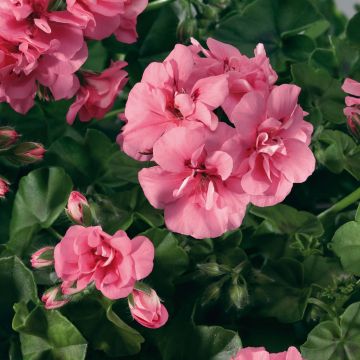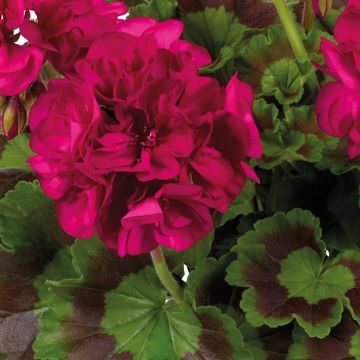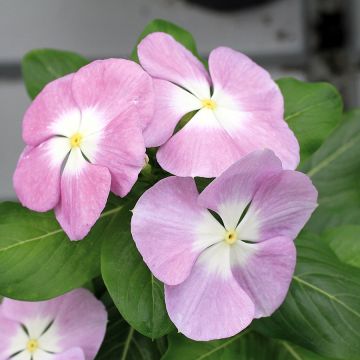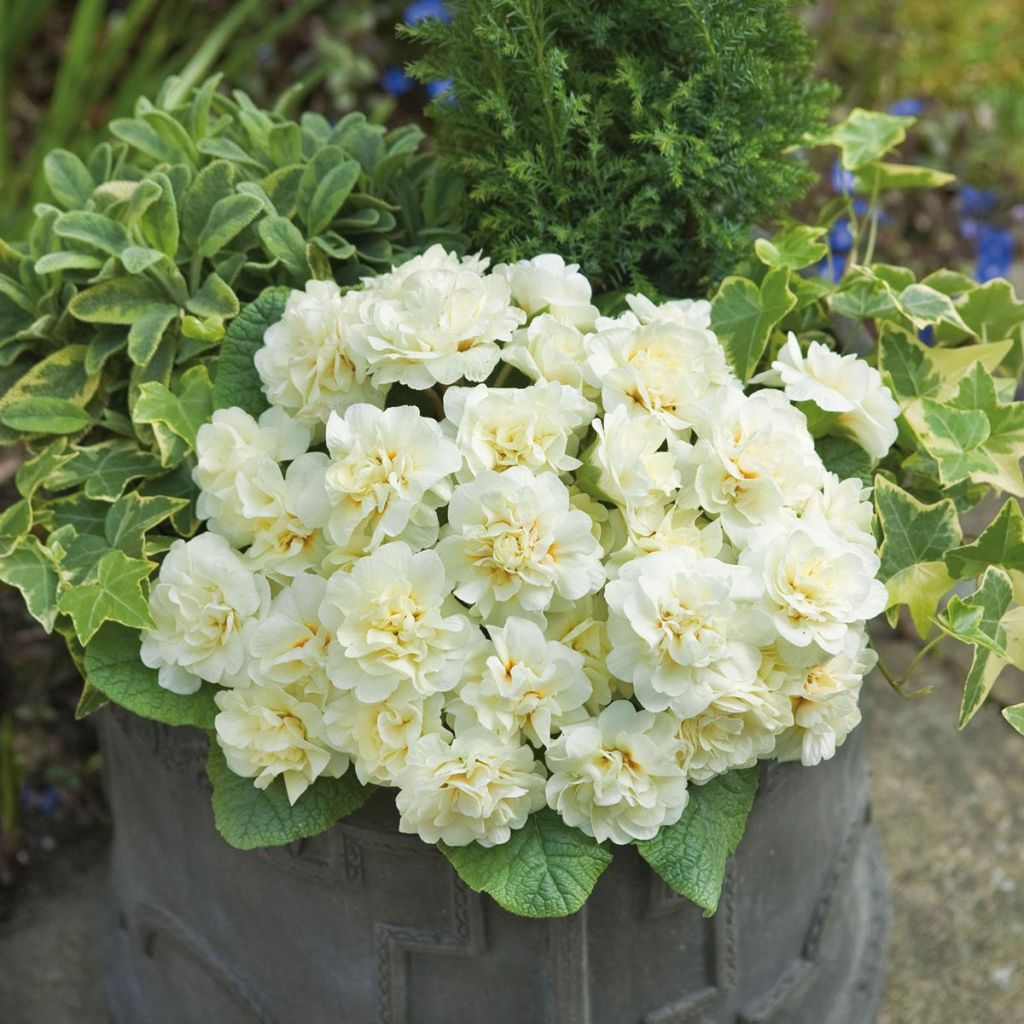

Double Primrose Primula Belarina Cream - Primula vulgaris
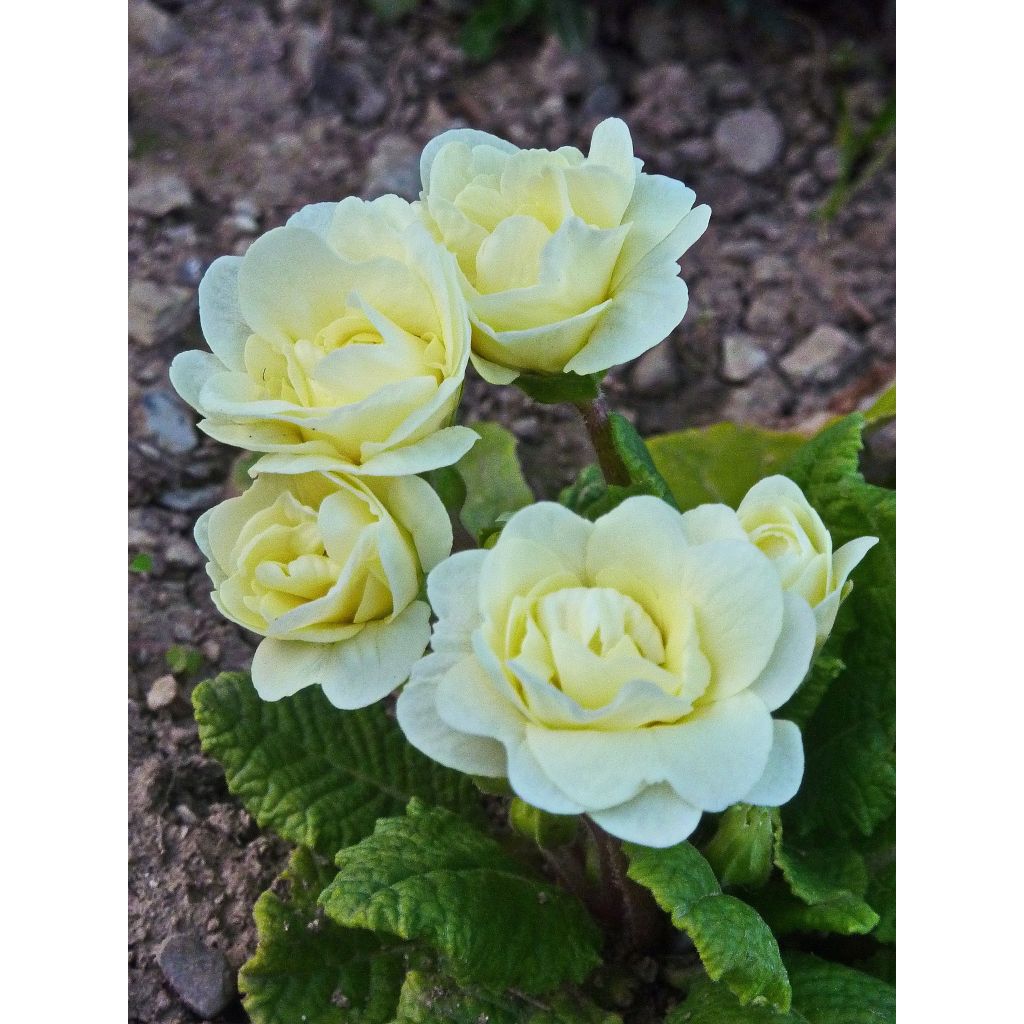

Double Primrose Primula Belarina Cream - Primula vulgaris
Double Primrose Primula Belarina Cream - Primula vulgaris
Primula vulgaris Belarina Cream ('Kerbelcrem')
Primrose, Common Primrose, English Primrose
All the primroses ordered in mini plugs have taken well and are looking beautiful this spring.
Sylvie, 24/03/2024
This plant carries a 6 months recovery warranty
More information
We guarantee the quality of our plants for a full growing cycle, and will replace at our expense any plant that fails to recover under normal climatic and planting conditions.
From €5.90 for pickup delivery and €6.90 for home delivery
Express home delivery from €8.90.
From €5.90 for pickup delivery and €6.90 for home delivery
Express home delivery from €8.90.

Does this plant fit my garden?
Set up your Plantfit profile →
Description
This Double Primrose Belarina Cream, bred from the native and perennial Primula vulgaris, usually blooms from January to April. Its double, creamy flowers are like a frill of Chantilly lace nestled in a tangle of bright green leaves. Once widely planted in English cottage gardens, double primroses had almost disappeared. New varieties are bringing these romantic biennials into the limelight, much to our delight!
The Primula vulgaris Belarina Cream is a herbaceous biennial plant of the primrose family. It is part of a series of recently-developed varieties that are distinguished by its double flowers. These plants flower abundantly among beautiful dense clumps of foliage, reaching a height of 15 to 20 cm (5.9 - 7.9 in) and a width of 25 to 30 cm (9.8 - 11.8 in) in just a few months. They develop evergreen rosettes of veined and ruffled leaves in a beautiful vibrant green. Belarina Cream produces 3 cm (1.2 in) diameter flowers that appear for 4 to 5 weeks. The double, small rose-like flowers are a creamy-white, gathered in perfect clusters. They are slightly scented and borne on short hairy stalks amongst the foliage.
Primula Belarina Cream are versatile biennials and really easy to grow. Perfect in pots, containers, flower beds, borders, they even thrive in moist, shady, fertile, soil. They deserve a place in every garden. Their colourful, fragrant, abundance of flowers herald the return of spring. They are ideal companions for tulips, pansies, horned violets and forget-me-nots. Beneath deciduous trees, in rockeries and lawns, they are beautiful among snowdrops and violets. The leaves and flowers are edible and can be eaten raw or cooked.
Properties:
They are the same as those of the cowslip or oxlip: the flowers are soothing and calming and can be used in expectorant preparations. The leaves help prevent bruising, and the entire plant (especially the root) has analgesic, anti-spasmodic, diuretic and expectorant properties.
Note: Please be aware that our young plant plugs are professional products reserved for experienced gardeners: upon receipt, transplant them as soon as possible, into containers, flowerpots, or directly into flowerbeds.
Report an error about the product description
Double Primrose Primula Belarina Cream - Primula vulgaris in pictures
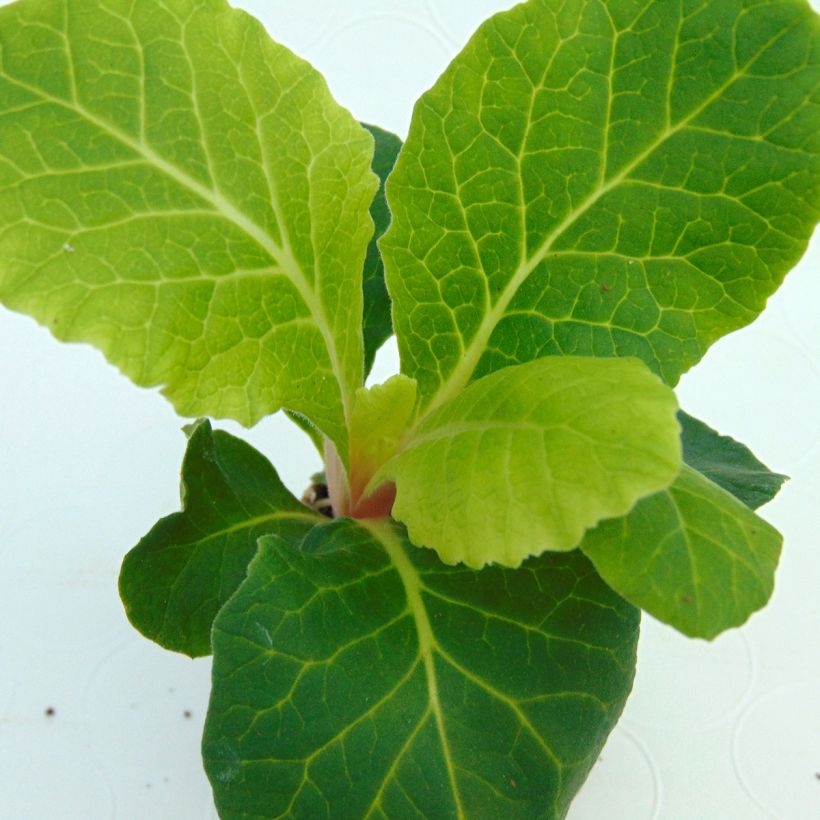

Flowering
Foliage
Plant habit
Botanical data
Primula
vulgaris
Belarina Cream ('Kerbelcrem')
Primulaceae
Primrose, Common Primrose, English Primrose
Cultivar or hybrid
Other Garden primroses
Planting and care
Plug plants should be planted in pots and containers or directly into the ground in improved, well-prepared soil. If possible plant upon receipt, in September-October. If the intended location is not yet ready or if the conditions are unfavourable for planting, you can let them grow on in pots for 4 to 6 weeks.
In pots and containers, use a good, light, well-draining, potting compost for flowering plants (geranium potting compost) enriched with clay and slow-release fertilizer. The top of the root ball should be level with the soil. Water thoroughly at planting and during the following weeks, as the young plants can quickly dry out. However, be careful not to over-water! Make sure to use containers with drainage holes and to empty the saucer 10 minutes after watering. Remember to water, even during winter, if it there is no rain or if the container is placed in a sheltered spot. Do not water during periods of frost.
Flowering abundantly and fast-growing, the perennial primrose Belarina is a nutrient-demanding plant. As soon as growth resumes, in late February or early March, and throughout the flowering period, apply a liquid fertilizer containing iron and trace elements 1 to 2 times a week when watering. Deadhead to encourage flowering. Once the flowering is over, plants in pots can be replanted in the garden in semi-shade.
Planting period
Intended location
Care
-
, onOrder confirmed
Reply from on Promesse de fleurs
Plug plants - Annuals
Haven't found what you were looking for?
Hardiness is the lowest winter temperature a plant can endure without suffering serious damage or even dying. However, hardiness is affected by location (a sheltered area, such as a patio), protection (winter cover) and soil type (hardiness is improved by well-drained soil).

Photo Sharing Terms & Conditions
In order to encourage gardeners to interact and share their experiences, Promesse de fleurs offers various media enabling content to be uploaded onto its Site - in particular via the ‘Photo sharing’ module.
The User agrees to refrain from:
- Posting any content that is illegal, prejudicial, insulting, racist, inciteful to hatred, revisionist, contrary to public decency, that infringes on privacy or on the privacy rights of third parties, in particular the publicity rights of persons and goods, intellectual property rights, or the right to privacy.
- Submitting content on behalf of a third party;
- Impersonate the identity of a third party and/or publish any personal information about a third party;
In general, the User undertakes to refrain from any unethical behaviour.
All Content (in particular text, comments, files, images, photos, videos, creative works, etc.), which may be subject to property or intellectual property rights, image or other private rights, shall remain the property of the User, subject to the limited rights granted by the terms of the licence granted by Promesse de fleurs as stated below. Users are at liberty to publish or not to publish such Content on the Site, notably via the ‘Photo Sharing’ facility, and accept that this Content shall be made public and freely accessible, notably on the Internet.
Users further acknowledge, undertake to have ,and guarantee that they hold all necessary rights and permissions to publish such material on the Site, in particular with regard to the legislation in force pertaining to any privacy, property, intellectual property, image, or contractual rights, or rights of any other nature. By publishing such Content on the Site, Users acknowledge accepting full liability as publishers of the Content within the meaning of the law, and grant Promesse de fleurs, free of charge, an inclusive, worldwide licence for the said Content for the entire duration of its publication, including all reproduction, representation, up/downloading, displaying, performing, transmission, and storage rights.
Users also grant permission for their name to be linked to the Content and accept that this link may not always be made available.
By engaging in posting material, Users consent to their Content becoming automatically accessible on the Internet, in particular on other sites and/or blogs and/or web pages of the Promesse de fleurs site, including in particular social pages and the Promesse de fleurs catalogue.
Users may secure the removal of entrusted content free of charge by issuing a simple request via our contact form.
The flowering period indicated on our website applies to countries and regions located in USDA zone 8 (France, the United Kingdom, Ireland, the Netherlands, etc.)
It will vary according to where you live:
- In zones 9 to 10 (Italy, Spain, Greece, etc.), flowering will occur about 2 to 4 weeks earlier.
- In zones 6 to 7 (Germany, Poland, Slovenia, and lower mountainous regions), flowering will be delayed by 2 to 3 weeks.
- In zone 5 (Central Europe, Scandinavia), blooming will be delayed by 3 to 5 weeks.
In temperate climates, pruning of spring-flowering shrubs (forsythia, spireas, etc.) should be done just after flowering.
Pruning of summer-flowering shrubs (Indian Lilac, Perovskia, etc.) can be done in winter or spring.
In cold regions as well as with frost-sensitive plants, avoid pruning too early when severe frosts may still occur.
The planting period indicated on our website applies to countries and regions located in USDA zone 8 (France, United Kingdom, Ireland, Netherlands).
It will vary according to where you live:
- In Mediterranean zones (Marseille, Madrid, Milan, etc.), autumn and winter are the best planting periods.
- In continental zones (Strasbourg, Munich, Vienna, etc.), delay planting by 2 to 3 weeks in spring and bring it forward by 2 to 4 weeks in autumn.
- In mountainous regions (the Alps, Pyrenees, Carpathians, etc.), it is best to plant in late spring (May-June) or late summer (August-September).
The harvesting period indicated on our website applies to countries and regions in USDA zone 8 (France, England, Ireland, the Netherlands).
In colder areas (Scandinavia, Poland, Austria...) fruit and vegetable harvests are likely to be delayed by 3-4 weeks.
In warmer areas (Italy, Spain, Greece, etc.), harvesting will probably take place earlier, depending on weather conditions.
The sowing periods indicated on our website apply to countries and regions within USDA Zone 8 (France, UK, Ireland, Netherlands).
In colder areas (Scandinavia, Poland, Austria...), delay any outdoor sowing by 3-4 weeks, or sow under glass.
In warmer climes (Italy, Spain, Greece, etc.), bring outdoor sowing forward by a few weeks.





































